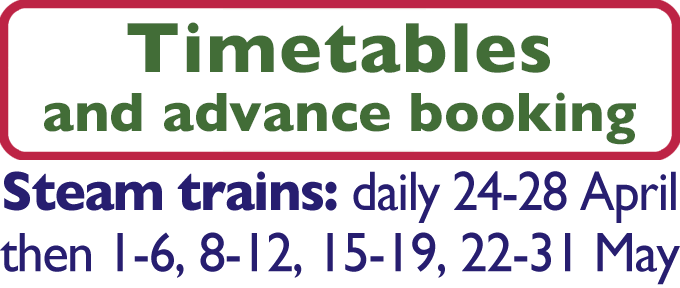One of our earliest acquisitions, this six-wheeled perishables' van is typical of many that were used to carry milk-churn and fruit traffic from the countryside into the towns and cities in the first half of the 20th century. These were rated as passenger vehicles, and for milk traffic were often attached to early morning passenger trains. Some vehicles of this design were built specifically for the rather more important "Grande Vitesse" service from Newhaven Harbour to London, but most were used on a variety of soft fruit, milk and meat traffic on the LBSCR system.
On withdrawal in 1939 No. 270 found further use as a service vehicle at Lancing Carriage Works, from where it was purchased by the Bluebell Railway in 1964. Splendidly restored to Brighton livery in the 1960s, it was used for many years as a store for signalling equipment.
Its presence at the Bluebell is significant in that one of Sheffield Park station's main traffics was in milk, with a narrow gauge railway running from the local dairy to the back of platform 2. The recent restoration to its former glory took place by a team of volunteers in a temporary workshop erected at Horsted Keynes. It will be a prime candidate for accommodation in an exhibition shed, when we are able to build such a facility.
Its restoration was essentially complete some years ago but two major issues have prevented it running. Firstly, during the course of its restoration the wrought-iron spoked wheels (believed to have been fitted in departmental days) were found to have cracks. Ideally new Mansell pattern wooden-centred wheels would have been made and fitted. However, the expedient way forward was decided to be to use SR carriage wheelsets, which were pressed onto new axles machined to suit the LBSCR axle-boxes. This has worked well, except that the new axles, being larger in diameter, caused us to have to redesign the brake rigging. This has been done, and the work is nearly complete. The second problem was with the springs, which have had to be re-tempered a couple of times, to try to get them right.













